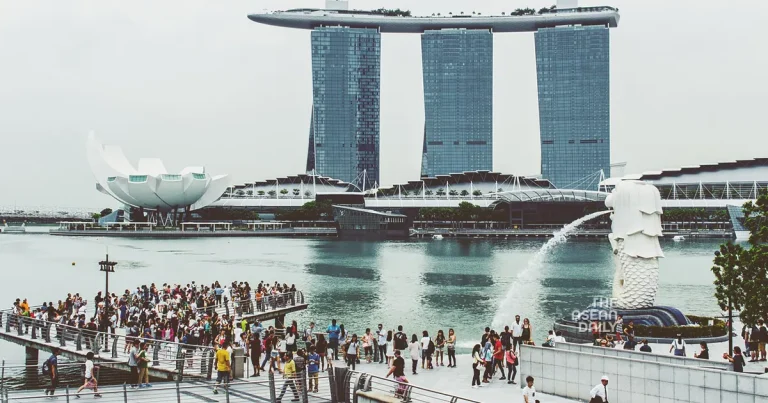20-3-2024 (SINGAPORE) While much of the world eagerly anticipates the return of Chinese tourists, Singapore stands out as a notable exception in the global tourism landscape.
In February, Singapore welcomed over 327,000 visitors from China, marking a remarkable 96 per cent of the pre-pandemic levels in 2019, according to data released by the Singapore Tourism Board last week. Forecasts indicate that this number is poised to surge in the coming months, with scheduled departure seats for the first quarter already surpassing 101 per cent of the 2019 levels, as reported by Cirium.
This recovery in tourism has surpassed that of neighbouring markets. Thailand, for instance, saw tourism at approximately 63 per cent of pre-pandemic levels in February, while Indonesia stood at about 48 per cent in the latest quarter. In Europe, projected visitors from China are expected to be around 40 per cent lower than in 2019, and the United States’ National Travel and Tourism Office forecasts total 2024 arrivals to be roughly 73 per cent of pre-Covid levels, partly due to geopolitical tensions.
Singapore’s success in attracting Chinese tourists can be attributed to several factors. The decision to waive visa requirements for visitors from China, coupled with a strong focus on safety and a vibrant array of cultural and entertainment events, has positioned Singapore as an attractive destination as China gradually reopens after stringent Covid controls. This synergy was particularly evident during the Lunar New Year holiday, when many travellers visited family and friends who had relocated to Singapore in recent years.
For visitors like Madam Zhuo, a native of Xiamen, Singapore’s appeal lies in its convenience and familiarity. As she strolled through Merlion Park, she remarked on the city’s urbanity, cleanliness, and resemblance to China, with the added advantage of accessibility through Mandarin and Hokkien languages.
Notably, Chinese tourists are not only returning in greater numbers but also spending more. Data from Trip.com shows that the average expenditure per visit to Singapore, including expenses such as flights and hotels, has increased by 30 per cent compared to the previous year.
Singapore has also tailored its offerings to appeal to a diverse range of Chinese travellers. Young adults like Yu Peixin, a 20-year-old student from Shanghai University of Science and Technology, are drawn to the city for cultural events such as Taylor Swift’s concert. Despite higher flight costs, Yu considers the experience worthwhile, highlighting the success of the government’s partnerships with concert promoters in attracting foreign visitors.
Direct flight connections between China and Singapore have remained robust, contributing to the sustained demand for travel despite economic headwinds and increased fares. The Singapore-China market, in particular, has demonstrated resilience, with scheduled seat capacity expected to recover to 101 per cent of 2019 levels in the first quarter of this year.
Singapore’s reputation for safety and reliability has further bolstered its appeal, especially amidst rising reports of hostility towards people of Chinese and Asian descent in other parts of the world. The city’s strong bilateral relations with China, characterised by cultural ties and mutual trust, have fostered a welcoming environment for Chinese travellers.
In a world marked by geopolitical tensions, Singapore’s positive relationship with China serves as a stabilising force, enhancing cross-cultural interactions and contributing to the city’s attractiveness as a tourist destination.




